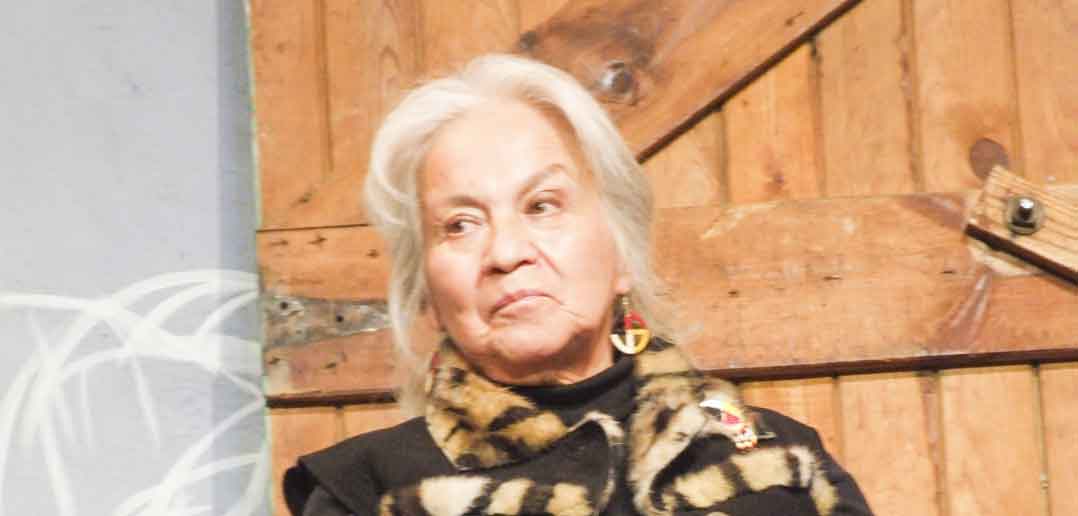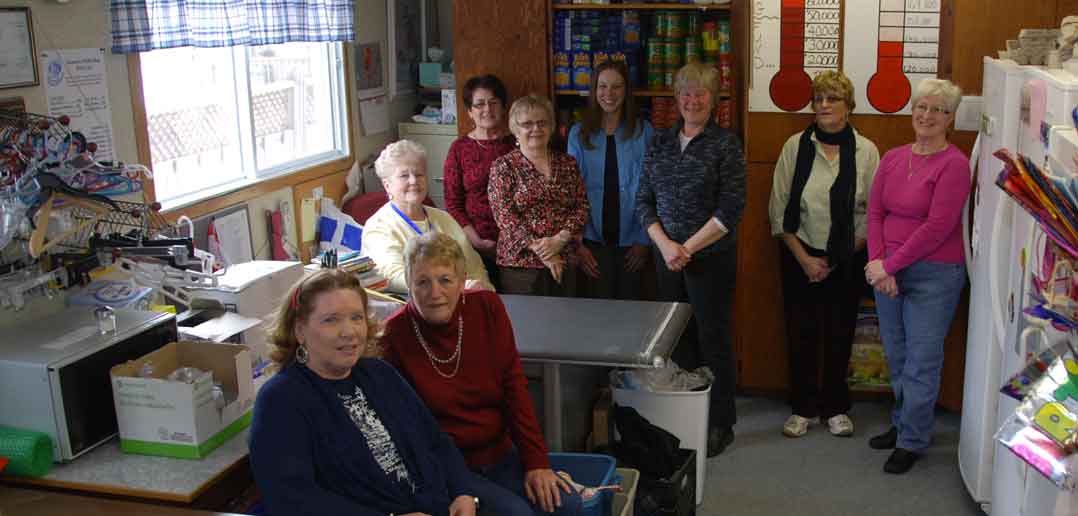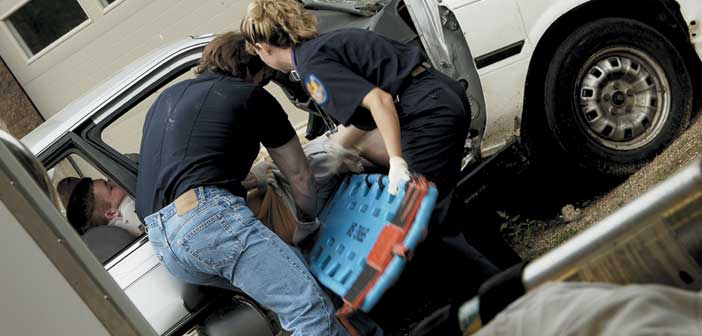MANITOWANING—When Jeanette Corbiere Lavell was a young woman in the 1970s, she, like a great many other Anishinaabe-kwe who had married a non-Native spouse, found herself excluded from First Nation recognition or status. The injustice of that legal exclusion interacted with her upbringing and culture to produce an explosion of activity and activism that sustained her through the minefield of racism and sexism that pervaded the justice system of the day and sustains her into the present. The initial loss of her court case in county court was a devastating blow, but she continued to fight against the machine and helped change the very fabric of our society. Eventually the law was changed so she could reclaim her legal aboriginal status, and so could her son and daughter.
Born in 1942 in Wikwemikong, the then Ms. Corbiere moved to Toronto where she worked as an executive secretary. She also worked for the Native Canadian Centre of Toronto in many capacities, including social, court and youth worker. Later, while working for the Company of Young Canadians, she travelled across the country working with Native communities. In 1965, she was chosen as Indian Princess of Canada.
But in 1970, Jeannette married David Lavell, a non-Native journalism student. Within weeks of her marriage, she received a notice from the Department of Indian Affairs and Northern Development stating that she was no longer considered an Indian according to section 12 (1) (b) of the Indian Act. It stated, “12 (1) The following persons are not entitled to be registered, namely, (b) a woman who married a person who is not an Indian, unless that woman is subsequently the wife or widow of a person described in section 11.” (The Indian Act, 1970).
“This was back in the 1970s,” she said. “I believed in the justice at the time, so when we lost in court at the county court, it hit me very hard.”
Ms. Corbiere Lavell said that her early experiences in the courts were an initiation into the underlying racism that existed in mainstream society of the day and the sexist reaction of the First Nations advocates at the time provided an even more devastating blow.
“The judge in the case, a Justice Grosberg I think it was, was putting our women down,” she said. “He said, ‘we know what Indian women are like, you should be glad a white man married you.’ That was what it was like in the courts in the 1970s.”
The loss at the county level did not deter Ms. Corbiere Lavell, and with her lawyer (a much younger Clayton Ruby) she continued the fight, winning a 1973 unanimous decision at the Ontario Court of Appeals. Unfortunately, politics and government pressure led the federal government of the day to appeal to the Supreme Court where she and fellow appellate Yvonne Bedard lost on a 5-4 decision.
During her battle, Ms. Corbiere Lavell sought the support of the Union of Ontario Indians (UOI), but the grand chief at the time was apoplectic when he heard about her crusade. “His name was Wilbur Nadjiwon and he got very upset with me,” recalled Ms. Corbiere Lavell. “He said ‘oh no, this is our tradition’ and he began berating me. We were not even allowed to present to the UOI. I found out later that he had married a white woman, so he had some interest in keeping it the way it was.”
But Ms. Corbiere Lavell found strong support closer to home—and at home.
“The chief in Wikwemikong at the time, John Wakegijig, was very supportive personally when he learned of what I was doing,” she said. “It did not go before the band council at the time because it was a personal initiative on my part.”
Her father, the late Adam Corbiere, told her to follow her heart and passion. “It doesn’t matter what other people think,” she recalled him telling her after the UOI rebuff. “If you believe in what you are doing, then you go ahead and do what you think is right.”
Ms. Corbiere Lavell co-founded the Ontario Native Women’s Association where she was vice-chairwoman from 1972 to 1973 and president from 1974 to 1975.
“When I was elected president of the ONWA, that was the only time I was paid for any of the work I did with the organizations I helped to found,” she laughed. “It is ironic, but then nobody got paid for that work back in those days. We did it all out of our own pockets. We did it because we believed in it.” Today, the ONWA receives government funding for the work they do on behalf of First Nations women.
Ms. Corbiere Lavell went on to be elected as one of the vice-presidents of the Native Women’s Association of Canada and was elected president of that organization in 2009 and she has also held the position of president of both the Nishnawbe Institute (an organization promoting Native culture) and Anduhyaun Inc. (a residence for Native women in Toronto). She later received her teaching degree from the University of Western Ontario, eventually becoming a school principal.
Ms. Corbiere Lavell was also a cabinet appointee to the Commission on the Native Justice System, as well as an education/employment counsellor, and a consultant to the community for the Ontario government. Today, retired from teaching, she still sits as an honourary lifetime board member with the ONWA as well as on the board of Debajehmujig Storytellers.
“I grew up with the examples of the strong women like my mother (the late Rita Corbiere),” said Ms. Corbiere Lavell. “She was one of the women who founded the Wiky Powwow and I believe she was the first Native school teacher in Wikwemikong. I learned English from my mother and Ojibwe from my father.”
She recalls the hard work and community spirit of the people as she grew up. “They didn’t sit around crying about things, they stood up and did something about it,” said Ms. Corbiere Lavell. “It was our way—you had to be that way to survive.”
Images remain of her grandmother, mother and aunties working late into the night to make cedar canoes and teepees for the tourist trade. “She would take a big bag of them into the dentist in Little Current and she would get $2.50 for the whole bag from the dentist’s wife, but she was very proud of that money and would buy things the family needed with that money,” said Ms. Corbiere Lavell.
In the end, Ms. Corbiere Lavell and her fellow activists succeeded in changing the law in Canada. In 1985 Parliament amended the Indian Act to remove the discriminatory clauses.
“When people in their 20s and 30s look back, I don’t think they really understand what we were facing in those day,” she said. That is a luxury born out of the tireless activism, perseverance and volunteerism of Ms. Corbiere Lavell and her compatriots like Mary Two Axe Earley in fighting for the rights of Anishinaabe-kwe across Canada. “Things have changed a lot for the better, but there is still a lot of work ahead.”
The list of organizations in which she and her parents and siblings had a hand in the founding comprise a virtual Who’s Who of service groups and events that are central to life in Wikwemikong, including the Amikook Elders’ Centre.
In 2009, Ms. Corbiere Lavell was honoured by then Governor General Michel Jean as one of that year’s five recipients of the prestigious ‘Persons Award,’ named in honour of the women who fought a century ago for women to be seen as persons in their own right in Canadian law.
Ms. Corbiere Lavell’s daughter, Dr. Dawn (Memee) Harvard is continuing this legacy of advocacy for women’s rights, having been elected as the youngest president of the ONWA in its history 12 years ago, a position in which she continues to serve. “She has her doctorate in education,” said Ms. Corbiere Lavell. “I am very proud of her.”
The ONWA established the Jeannette Corbiere Lavell Award in 1987 “to be presented annually to a deserving Native Woman demonstrating the same qualities and dedication as Jeannette.”





